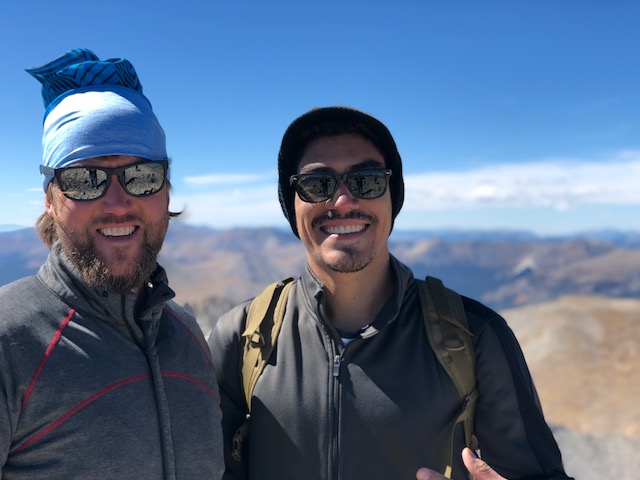Being a Binational Organization
When we’re resilient, well supported and dedicated to collaboration most issues can be seen as good challenges. We don’t have to avoid obstacles, we just have to work through them. With respect and open minds those difficulties simply push us toward becoming better coworkers. By embracing the complexity of speaking two languages, having office hours in two time zones, and being from cultures with different values we grow more professional and more experienced. It seems that once some of us get a taste for this we enjoy it and want to continue expanding our skills.
These quotes say it all:
“The most surprising thing about working with colleagues from the US has been to discover that the diversity of languages, cultures and distances are not a barrier when working as a team, and without a doubt, extraordinary things can be achieved as a result of this fusion.”
–Ana Carolina Romero, administration and finance assistant (Mexicali)
“My connection with nature is different, it’s much better. It has also motivated me to perfect my skills in the English language and has motivated me to look for more professional experiences.”
–Rabí Hernandez, environmental communication and social participation coordinator (Mexicali)

“Working with Sonoran has allowed me to know new cities, landscapes, food and very cool people with similar interests. I have faced new, good challenges, including language, culture, values, lifestyles, etc.”
–Sandra Ortiz, riparian restoration coordinator (Mexicali)
“Driving this organization is more complicated and requires resources to successfully adapt to different contexts, cultures and conditions and it can be a challenge to connect our work across borders and teams. However, it means we have and can continue to craft compelling, primary source stories.
I attended an all-staff retreat in Mexicali the first year I was at Sonoran. The experience turned talking points into intrinsic, motivating memories that inspire me to dare to fail and find spaces that Sonoran Institute can make a sustainable and invaluable impact.”
–Jeremy Stapleton, director of climate resilience (Phoenix)
“It does take some extra effort to find the data, translate materials, and such things to include our neighboring country. I admit I’ve made mistakes too, naturally. But, that’s why I’m personally grateful to work for a binational organization: it makes me into a better, more inclusive, human being.”
–Amanda Smith, program associate (Tucson)
“I love being able to better understand everyday life in other countries. Spending time with my coworkers in Mexicali lets me learn what their days are like, where they like to hang out, where the good lunch spots are. Those details may seem mundane, but it’s so fascinating to me!”
–Elise Christmon, development and finance coordinator (Tucson)
“Seeing two perspectives that seek the same good with different approaches helps us grow.”
–Elizabeth Díaz, estuarine ecological monitoring coordinator (Mexicali)
“All of the staff I supervise and nearly all of the people I work with on a daily basis are based in Mexico, while I am based in the US. I absolutely love the binational aspect of my work, which is a key reason for why I love working at Sonoran Institute. I am enriched and challenged on a daily basis, and find it hard to imagine another job that is as dynamic and interesting as the one I have. Our binational status has provided me with the opportunity to participate in ongoing multi-stakeholder partnerships to restore a transboundary river system, collaborating with a diverse group of dedicated, talented people on both sides of the border.”
–Karen Schlatter, associate director, Water & Ecosystem Restoration (USA)
“Being a dual citizen, I have been able to meet all of my colleagues and work with them on both sides of the border, and I’ve gotten to truly cherish every experience. Thanks to these opportunities I now help coordinate a department that can help any program, any project, anywhere.”
–Angela Melendez, GIS coordinator (Mexicali)
“There is a day-to-day realization that so many issues are shared in and between countries.”
–Michael Blimes, director of development (Tucson)
“I have felt far more comfortable with basic Spanish than ever before. This helps my work, but also helps me feel far more connected to this region, where so many speak Spanish as their first language.”
–Claire Zugmeyer, ecologist (Tucson)
This is part 2 of 5 in a series about being a binational organization
Read the other posts:
- A border is not a barrier (Introduction)
- Challenges that are persistent
- Our common connection to nature
- Pride, gratitude and generosity
By: Corinne Matesich, Marketing Communications Manager
